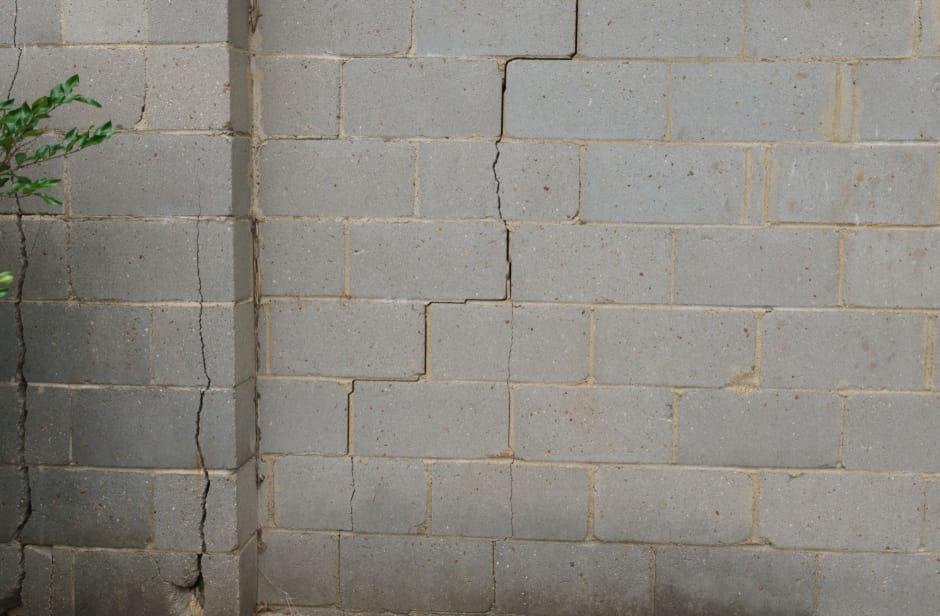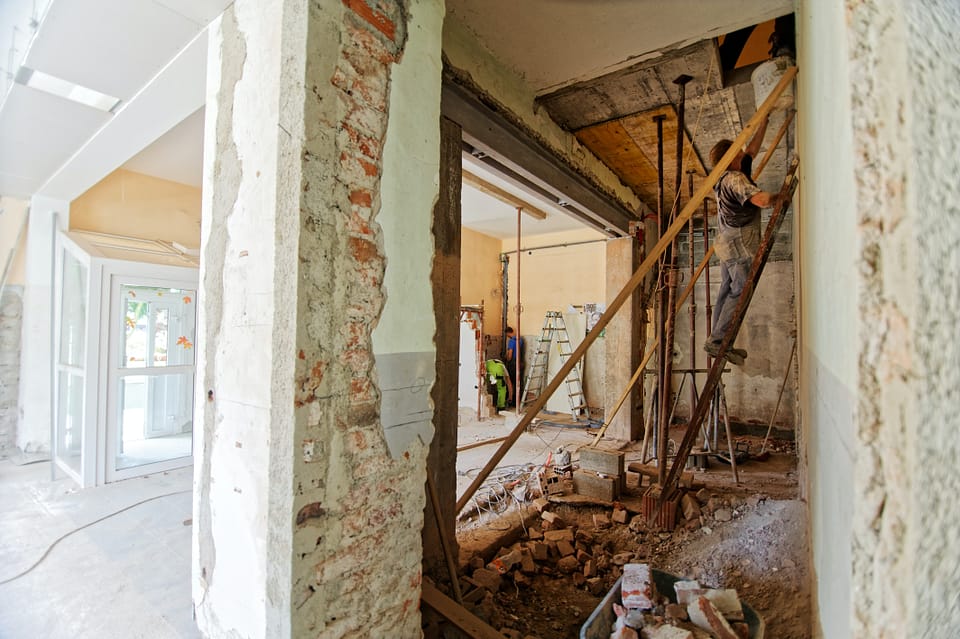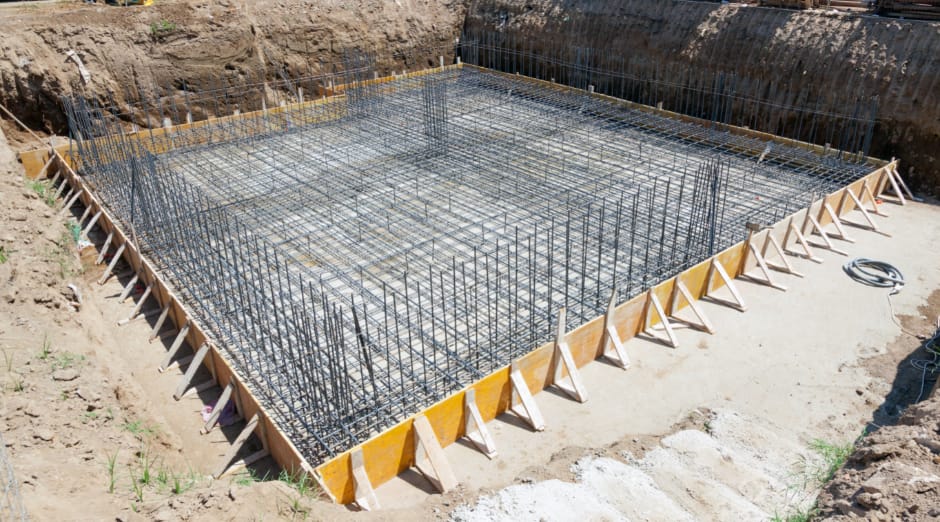How to Sell a House With Foundation Issues
Selling a home without any issues can be tricky. Selling a house with issues (especially ones with the foundation) can be even more difficult. However, despite many buyers being put off by structural issues, you can still sell a property with major repair work needed.
It’s important when selling a house with foundation issues to ensure the problems are properly identified and the issues disclosed to potential buyers. It’s also important to prepare the house properly for a sale to avoid issues cropping up later.
Keep reading to learn how to sell a house with structural issues.
How to Sell a House With Foundation Issues
1. Confirm the Severity of the Issues

It is advisable to check first whether there are foundation issues (or if it’s something else) and how severe any problems are before making your decisions. Usually, foundation issues are easy to spot. Some key signs of foundation issues include:
- Wall and floor cracks
- Uneven leveling on the floor
- Misalignment in the windows or doors
Don’t be alarmed if you detect these issues as they may not necessarily be foundational problems. The only way to confirm if it’s an issue (and how severe it is) is to call a home foundation expert to complete a thorough examination and fully identify the problem.
Foundation repair companies can also help, especially if you are considering solutions. Real estate agents usually identify such challenges when making home valuations and can also assist.
2. Disclose the Information to Prospective Buyers
If you have confirmation from professionals that you have foundation issues, this must be disclosed to potential buyers. In most states, the law dictates that the owner discloses any structural damages to the prospective buyer before negotiating a sale (source).
So, if you decide not to repair foundation issues on a property, you will be obliged to inform any new buyer about them. You should also be prepared for buyers to complete their own home inspections on a property before finalizing an offer or proceeding with the sale to estimate the costs of the repair work for themselves.
Evaluations will always identify any foundational hitches, making disclosure even more prudent. The inspector’s job is to check and report findings, but it is impossible to identify the causes or give solutions. Only experts in the field, like engineers, can pinpoint what happened and give solutions. Upon full disclosure, the prospective buyer can either accept the price, decline the offer, or bargain for a price reduction.
Foundational problems are justifiable reasons to ask for a lower price because it means costly repairs. When flipping a property, you can buy, renovate and resell at a higher price. Therefore, it is critical to lay all the cards on the table before making any deals.
3. Give the Client All the Necessary Information
Besides notifying the buyer about your home’s foundation issues, it’s important to complete your own research on the issue and the costs/inconvenience involved in its repair.
Otherwise, this can make negotiations even more tricky. A buyer could attempt to knock too much off the asking price to complete the repair work. Or they may make the issue into a bigger issue than it really is to gain more negotiating power.
However, giving the potential buyers an indication via your own research of the costs involved to repair the foundation issues and the work involved puts you at the forefront of any concerns or challenges.
You can make a rough estimate if you cannot find the actual cost. The extent of damage will help determine the timeframe because severe complications will take longer, meaning they must wait a while before moving in. Also, let the new occupant know whether you have insurance cover for the foundation repair services and the type of policy involved.
Finally, make sure to disclose whether you undertook any serious repairs to cover certain foundation damages in the past. Some materials are for concealing purposes only, and you may have unknowingly used them. You should remove them first because the new owner may notice and take legal action against you.
4. Identify Your Target Market
Properties with foundation issues will still sell, but it’s important to find the right buyers. Property investment companies, house flippers, and investors will usually be the primary buyers of houses with foundation issues.
Additionally, many homebuyers don’t mind renovating a house as long as they get a great bargain. The only downside is that you will have to sell your home at a lower cost than a house in good condition. Some buyer groups jump at the thought of getting a lucrative deal. After the transactions, clients who can acquire loans can make the necessary repairs and restore the house to its actual state.
Your target should be house flippers whose objective is to buy affordable homes, spruce them up, and sell them at higher costs. You may discuss the house’s condition and agree with the buyer to settle the repairs or renovate it.
You can easily find a buyer with reasonable price points and negotiation skills. If you don’t land clients, you can consult highly-rated agents since they have more experience closing such properties.
Should I Repair a House With Foundation Issues Before Selling?

The decision to repair or sell a house as is is usually a personal decision, depending on certain aspects. For one, you can consider how severe the foundation issues are and how much they affect the home’s value. Owners inclined to make repairs first have their reasons. Ideally, many sellers consider renovating before placing the house on the market.
Making cosmetic changes will widen the buying pool because people immediately see that there are no structural damages. They may love the home at first sight. Plus, stabilizing the house can be a bonus point for prospective buyers. Reinforcing the foundation can even increase the home’s price point.
Repairs should be a priority if you intend to get as much as possible from your cherished home. Conversely, some buyers may be on a tight budget and cannot afford structural repairs. You may also lack the time for renovations if you want to sell a house quickly.
In such cases, you will need an inspection report and other relevant documents to convince the buyer about the most competitive price based on the situation. If you sell reasonably, you don’t have to make repairs since the buyer will get a great bargain. Besides, repairing can cost time and money compared to selling as is.
Sometimes a committed buyer may be willing to overlook the issues, for which you will have spent money unnecessarily. On the downside, leaving the issues intact can discourage many buyers if they don’t want the hassle involved with renovations.
In most cases, such cosmetic and structural issues can slash sale prices by 10-15% unless you are lucky to find flippers who want to make a profit after resale. Both sides have their pros and cons, and it is crucial to evaluate both before deciding whether to make repairs or not.
How to Prepare to Sell a House As Is

You can opt to sell your house intact or make foundational repairs, but it is critical to weigh out all the ups and downsides. If you want to trade your home, you should be ready for some consequences.
For starters, you will hand over the house without repairs or guarantees, but at a lower cost than if it were in mint condition. Homes with faulty foundations and other damages usually attract investors and flippers, and you can disclose any relevant information about the property.
Luckily, contacting an experienced agent for the process may make it easier for you to sell the house. You can also find a cash investor when you don’t have enough time for the documentation but want to close the deal soon.
Some want to buy and hold the property or rent it, while others prefer it for personal use. Some dealers can also offer cash against your home in days and close the transaction.
Tips to Sell a House With Foundation Issues
If you cannot repair the foundational problems before the sale, you will need the right strategies to appeal to buyers. Once you are transparent with the situation and buyers know in writing about the house’s challenges, you can narrow down the options to those still interested.
If not, the inspector will point it out, and you may lose the deal, or they will request a massive price reduction. Also, the new buyer can sue you if you sell the house without full disclosure. You should always try to gain the client’s trust in these circumstances, or you will lose more.
To be sure that the buyers understand the situation and to protect yourself from lawsuits, you can encourage them to confirm it in writing. It may also help to give the prospective owner contacts of a trusted repair company to offer access to professional services should they want to renovate.
Another vital strategy most homeowners overlook is involving real estate agents. You will need them for most of the processes, from inspection reports and quotations to other necessary procedures. You can work with your agent to deal with the challenge at an individual level by making convincing arguments why it is still an excellent investment. Eventually, the standard price may reduce, but it will still be worth it given the house’s current condition.
Summary
There are various reasons for foundation failure, but they don’t mean you cannot sell your house anymore. You can attract flippers and investors if you follow all the proper channels. Just remember to disclose the information to all your clients and be transparent about any other related issue.
Do you need to sell a house with structural issues quickly? At Brotherly Love Real Estate, we buy houses as-is in as little as 21 days. If you need to sell your house with foundation issues, contact us today and we will make you a cash offer.
